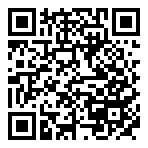Chapter 34
T
he driver who collected Bishop Aringarosa from Leonardo da Vinci International Airport pulled up in a small, unimpressive black Fiat sedan. Aringarosa recalled a day when all Vatican transports were big luxury cars that sported grille-plate medallions and flags emblazoned with the seal of the Holy See. Those days are gone. Vatican cars were now less ostentatious and almost always unmarked. The Vatican claimed this was to cut costs to better serve their dioceses, but Aringarosa suspected it was more of a security measure. The world had gone mad, and in many parts of Europe, advertising your love of Jesus Christ was like painting a bull's-eye on the roof of your car.Bundling his black cassock around himself, Aringarosa climbed into the back seat and settled in for the long drive to Castel Gandolfo. It would be the same ride he had taken five months ago.
Last year's trip to Rome, he sighed. The longest night of my life.
Five months ago, the Vatican had phoned to request Aringarosa's immediate presence in Rome. They offered no explanation. Your tickets are at the airport. The Holy See worked hard to retain a veil of mystery, even for its highest clergy.
The mysterious summons, Aringarosa suspected, was probably a photo opportunity for the Pope and other Vatican officials to piggyback on Opus Dei's recent public success—the completion of their World Headquarters in New York City. Architectural Digest had called Opus Dei's building "a shining beacon of Catholicism sublimely integrated with the modern landscape," and lately the Vatican seemed to be drawn to anything and everything that included the word "modern."
Aringarosa had no choice but to accept the invitation, albeit reluctantly. Not a fan of the current papal administration, Aringarosa, like most conservative clergy, had watched with grave concern as the new Pope settled into his first year in office. An unprecedented liberal, His Holiness had secured the papacy through one of the most controversial and unusual conclaves in Vatican history. Now, rather than being humbled by his unexpected rise to power, the Holy Father had wasted no time flexing all the muscle associated with the highest office in Christendom. Drawing on an unsettling tide of liberal support within the College of Cardinals, the Pope was now declaring his papal mission to be "rejuvenation of Vatican doctrine and updating Catholicism into the third millennium."
The translation, Aringarosa feared, was that the man was actually arrogant enough to think he could rewrite God's laws and win back the hearts of those who felt the demands of true Catholicism had become too inconvenient in a modern world.
Aringarosa had been using all of his political sway—substantial considering the size of the Opus Dei constituency and their bankroll—to persuade the Pope and his advisers that softening the Church's laws was not only faithless and cowardly, but political suicide. He reminded them that previous tempering of Church law—the Vatican II fiasco—had left a devastating legacy: Church attendance was now lower than ever, donations were drying up, and there were not even enough Catholic priests to preside over their churches.
People need structure and direction from the Church, Aringarosa insisted, not coddling and indulgence!
On that night, months ago, as the Fiat had left the airport, Aringarosa was surprised to find himself heading not toward Vatican City but rather eastward up a sinuous mountain road. "Where are we going?" he had demanded of his driver.
"Alban Hills," the man replied. "Your meeting is at Castel Gandolfo."
The Pope's summer residence? Aringarosa had never been, nor had he ever desired to see it. In addition to being the Pope's summer vacation home, the sixteenth-century citadel housed the Specula Vaticana—the Vatican Observatory—one of the most advanced astronomical observatories in Europe. Aringarosa had never been comfortable with the Vatican's historical need to dabble in science. What was the rationale for fusing science and faith? Unbiased science could not possibly be performed by a man who possessed faith in God. Nor did faith have any need for physical confirmation of its beliefs.
Nonetheless, there it is, he thought as Castel Gandolfo came into view, rising against a star-filled November sky. From the access road, Gandolfo resembled a great stone monster pondering a suicidal leap. Perched at the very edge of a cliff, the castle leaned out over the cradle of Italian civilization—the valley where the Curiazi and Orazi clans fought long before the founding of Rome.
Even in silhouette, Gandolfo was a sight to behold—an impressive example of tiered, defensive architecture, echoing the potency of this dramatic cliffside setting. Sadly, Aringarosa now saw, the Vatican had ruined the building by constructing two huge aluminum telescope domes atop the roof, leaving this once dignified edifice looking like a proud warrior wearing a couple of party hats.
When Aringarosa got out of the car, a young Jesuit priest hurried out and greeted him. "Bishop, welcome. I am Father Mangano. An astronomer here."
Good for you. Aringarosa grumbled his hello and followed his host into the castle's foyer—a wide-open space whose decor was a graceless blend of Renaissance art and astronomy images. Following his escort up the wide travertine marble staircase, Aringarosa saw signs for conference centers, science lecture halls, and tourist information services. It amazed him to think the Vatican was failing at every turn to provide coherent, stringent guidelines for spiritual growth and yet somehow still found time to give astrophysics lectures to tourists.
"Tell me," Aringarosa said to the young priest, "when did the tail start wagging the dog?"
The priest gave him an odd look. "Sir?"
Aringarosa waved it off, deciding not to launch into that particular offensive again this evening. The Vatican has gone mad. Like a lazy parent who found it easier to acquiesce to the whims of a spoiled child than to stand firm and teach values, the Church just kept softening at every turn, trying to reinvent itself to accommodate a culture gone astray.
The top floor's corridor was wide, lushly appointed, and led in only one direction—toward a huge set of oak doors with a brass sign.
BIBLIOTECA ASTRONOMICA
Aringarosa had heard of this place—the Vatican's Astronomy Library—rumored to contain more than twenty-five thousand volumes, including rare works of Copernicus, Galileo, Kepler, Newton, and Secchi. Allegedly, it was also the place in which the Pope's highest officers held private meetings… those meetings they preferred not to hold within the walls of Vatican City.
Approaching the door, Bishop Aringarosa would never have imagined the shocking news he was about to receive inside, or the deadly chain of events it would put into motion. It was not until an hour later, as he staggered from the meeting, that the devastating implications settled in. Six months from now! he had thought. God help us!
Now, seated in the Fiat, Bishop Aringarosa realized his fists were clenched just thinking about that first meeting. He released his grip and forced a slow inhalation, relaxing his muscles.
Everything will be fine, he told himself as the Fiat wound higher into the mountains. Still, he wished his cell phone would ring. Why hasn't the Teacher called me? Silas should have the keystone by now.
Trying to ease his nerves, the bishop meditated on the purple amethyst in his ring. Feeling the textures of the mitre-crozier appliqué and the facets of the diamonds, he reminded himself that this ring was a symbol of power far less than that which he would soon attain.



 ePub
ePub A4
A4